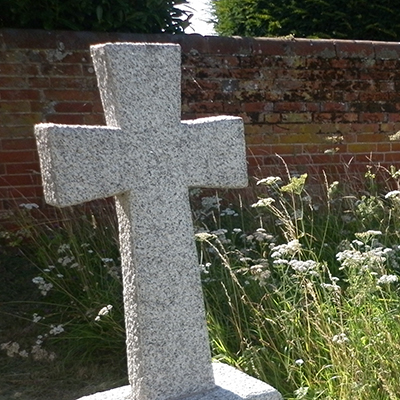What to do first
Death in a Hospital
The Doctor treating the deceased will complete the Medical Certificate of Cause of Death needed for Registration. In some cases the hospital bereavement office will email the certificate directly to the Registrar of Births, Deaths and Marriage. We will make all the necessary arrangements to collect your loved one and bring them to our Chapel of Rest.
Death at Home or in a Residential/Nursing Home
When a death occurs at home you will need to call the deceased’s Doctors surgery to arrange for a G.P to visit and confirm a death has occurred. Should death occur in a Residential/Nursing Home, the staff will contact the surgery for you. In both cases we will make arrangements for the collection of your loved one and bring them to our private Chapel of Rest.
After a G.P. has confirmed a death has occurred, the deceased’s G.P will issue the Medical Certificate of Cause of Death and email it directly to the Registrar of Births, Deaths and Marriage.Death outside the United Kingdom
If death occurs outside the U.K, simply contact A.G Smith Funeral Directors and we will make all the necessary arrangements to have your loved one repatriated to our private Chapel of Rest.
- An unexpected death
If someone has died unexpectedly or if their G.P has not seen them within 14 days of death, their death will be reported to the Coroner. When the Coroner’s investigation is complete, they will advise you to contact the Registrar of Births, Deaths and Marriages.
Registering a death
Once the GP or Coroner has sent the Medical Certificate of Cause of Death to the Registrar , you may register the death.
A death must be registered within 5 days with the Registrar of Births, Deaths and Marriages, unless the death has been referred to a coroner. If the death of your loved one is referred to a coroner, they will advise you as to their procedures and let you know when they are complete.Click here to make an appointment to register the death via the telephone. When registering the death, you will need to provide the following information about the person whose death you are registering:
- Full name (and previous names)
- Date and place of birth
- Occupation
- Last home address
- Full name, date of birth and occupation of their surviving spouse or civil partner
- Any public pensions or allowances (such as a military pension)
- Medical card (if available)
- Funeral Director’s email address enq@bakersfunerals.co.uk (so the Registrar can send the Registrars Certificate for Burial or Cremation to the Funeral Director)
The Registrar will give you two documents when you register the death:
- Registrars Certificate for Burial or Cremation (Green Certificate) – you will need to give this to us to enable the burial or cremation to take place.
- Certificate of Registration of Death (Death Certificate) – this is a certified copy of the entry in the register. You can pay the registrar for additional copies of the certificate to provide to Banks, Building Societies, Insurance Companies etc.
Other Concerns
Wills and Probate
When a death occurs, the executor (nominated in the will) can start the process of obtaining probate, if necessary.
If there is no will, a decision will have to be made as to who will deal with your loved one’s affairs. If necessary that person will apply for “letters of administration”.
How to pay for a funeral
If your loved one did not have a pre-paid funeral plan, funeral insurance or savings specifically for their funeral, you can contact their bank or building society to ask if they have funds available to cover the cost of the funeral. The bank or building society may release the funds to the executor or administrator of the will or pay for the funeral services directly.
Financial support
On the occasion where there are insufficient funds to pay for the funeral, there is financial support available;
- Bereavement payment
- Bereavement allowance
- Funeral payment from the Social Fund
- Widowed Parent’s allowance





